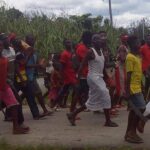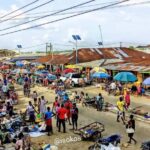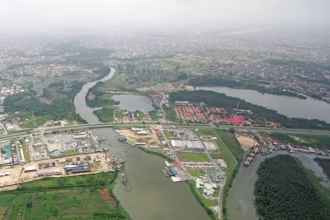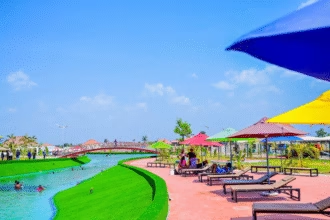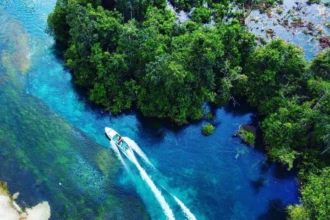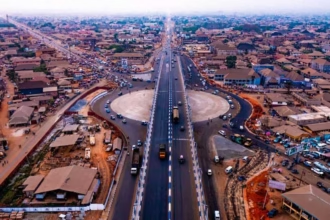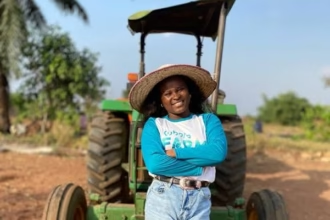Uzere Kingdom is a clan of its own with about 9,613 inhabitants according to 1991 population census. It is one of the earliest clans that constituted the nineteen clans in Isoko land. While some people believed that the Uzere people originated from the Benin kingdom, others disagree.
The belief that most of the Isoko groups (of which Uzere is a part) are of Benin origin were views held and
expressed in the 1960s and 1970s. These views were “decidedly simplistic and were based on British Intelligence Reports of the 1930s”.
Obaro Ikime, A Professor of history at the university of Ibadan, state that “if there is any aspect of the history of the various peoples of Nigeria about which no one can speak with any exactitude, it is that which deals with the origin of our peoples”.
The belief that most of the Isoko groups of which Uzere is a part are of the Benin origin were view held and expressed in the 1960s and 1970s. But these views or historical accounts, albeit oral, make interesting reading. For instance some people have posited that Uzere originated from the Benin kingdom in the year 1593 during the reign of a Benin Monarch named Oba Ehengbuda.
J.W. Hubbard, in his book, The Sobo of the Niger Delta, gave 1593, as the founding date when the first settlers arrived at Uzere clan, thus making it one of the oldest clan. They came from Benin under the leadership of a man named Uzei which gave rise to the name UZERE. Uzei had three surviving sons namely, UHERI, EZEDE AND UWEYE.
This account holds that when they left the Benin kingdom, they first settled at Isele-Uku. After a while they migrated to the River Niger bank at Asaba.
From Asaba, they migrated further to Eboh in Ndokwa. From Eboh they built their own settlement which they called Eruke. After they built Eruke, the account goes that, one of the sons, Okugbo, wanted to return to the Benin kingdom to buy ‘kingship’ rights from the Oba of Benin so that he could be crowned king of his people.
When Okugbo got to Benin, the Oba sent him to the Eboh king so he could buy his ‘kingship’ rights from him.
The Eboh king crowned him the very first king of his people in the year 1453. After a while, the Eboh king invited king Okugbo to visit with him. He accepted this invitation but was accused of committing an atrocious act in Eboh-land during the visit and for that he was killed by the Eboh people.
War broke out between these two peoples due to the killing of king Okugbo. The Uzei people had a deity which they worshiped and the deity, the accounts goes that he instructed the people to “dig themselves underground” to await the Ebohs.
The people obviously misinterpreted this instruction. And instead of getting themselves ready for war, as was the intended meaning of the instruction, they actually buried themselves waist and neck deep in ground. Most were massacred when the Ebohs invaded.
After the massacre, most of the surviving Uzei people sought safety in the present day UZERE town while the rest moved to Odi, in present day Bayelsa State. This, the account believes, explains the kinship that exists between Uzere and Odi today.
Uzere formerly known as “Uzei” is located in the Isoko South Local Government Area (LGA) of Delta State of Nigeria.
It is about 18.5 kilometres, from the Local Government Headquarters in Oleh, and 9 kilometers, from Asaba Ase which is located on the bank of the Ase creek of River Niger. It has become one of the largest petroleum oil producing communities in Nigeria. Oil exploration started in Uzere in 1957.
Uzere has two oil fields(Uzere West and Uzere East) with a total of 43 oil
wells producing about 53,000 barrels per day (8,400 m3/d).
Uzere has nine communities: Uhei, Ezede, Uweye, Afikioko (London Base), Uhroko (Paris), Ekregbesi, Abale, Iwre-Ezede, and Iboro.
Geographical location
Uzere lies within the tropical rainforest belt with luxuriant vegetation. It experiences tropical wet and dry climate, with relatively constant temperatures throughout the course of the years.
Uzere is situated on location of
longitude 6° E and latitude 5° N.
The clan is bounded in the North- West by Aviara and her villagers, in the West by Igbide, in the South by Asaba-Ase while in the South-West by Erowa and Abari Village.
The community has a network of roads that link almost all the major towns in Isoko South Local Government Area of Delta State.
Uzere is not only centrally located in Isoko South, she is also so suitably located that it serves both as a major commercial/business center of Isoko people as the vital corridor through which all the neighboring towns and villages evacuate their farm produce to all parts of Local Government.
The community being very
rich in crude oil attracts attention of several oil companies to the community such as SPDC and Agip.
Culture and Customs
The Community Festivals
The festival of Eni is the most celebrated festival in the history of Uzere Kingdom. Eni festival “attracts people from all walks of life especially places where the people usually flock to Uzere to detect witchcraft.
It is accompanied with much fanfare, music, cooking and eating of delicious native food. It also includes exchange of gifts”.
Other festivals are the annual
Uzere Students’ Reunion and Pageant, and the New Year Eve Party usually hosted by Arube Dance Band of Uzere at the Old Market Square.
Worships and Religious Beliefs
In the ancient days, the people of Uzere pray to Eni which was regarded as their god (Oghene). But today in Uzere the methods of reaching God is now different since we have an admixture of Christians and traditional worshippers. But of a critical look, they both believed on the existence of one supreme being usually referred to as Oghene-Ologbo (the Supreme God) not minding the difference in their methods of reaching that God
Language
The people of Uzere speak Isoko language as their mother tongue and the most common means of communication in the community both in discussion and commerce. English language is also used especially by the youths and the educated people in the community and also when discussing with strangers who are not familiar
with the Isoko language.
Mode of Life
• Occupation
Uzere people are majorly
involved in farming, fishing and trading as their occupation. Most of the women whether the major trader or not, are involved in one form of trading of trading or the other especially in the selling of their tapioca produced from their farms. They are also involved in the production and selling of groundnut.
• Food
The major food eaten by the people Uzere is starch (Ozi), garri, yam and akpu (egu) Standard diet consists a bowl of starch taken with Banga soup adorned with fresh fish.
• Housing
The houses in Uzere are mainly built with bricks but in the ancient days, they were predominantly built with mud and thatch roof.
Health Status of the community
Factors affecting Health
- Environmental Degradation: In Uzere, there is a very high prevalence of environmental degradation as a result of poor agricultural practices, excessive exploitation of oil and gas in the community by the various oil companies operating in the communities.
- Harmful Cultural Practices: The communities which is a rural communities, are engaged in some harmful traditional practices which are harmful to health. Some of such harmful traditional practices are female genital mutilation, food taboos, widowhood inheritance, etc.
- Youth Restiveness: Due to high level of unemployment among the youths, there are usually cases of youth restiveness in most cases generated by using inappropriate medium to seek redress to issues bothering the youth. This has led to several crisis between the oil companies and the youths and also between the oil companies operating in the communities and the youths.
- Gas Flaring: Due to lack of
effective management of the gas exploited by the oil companies, most of the gases are flared in the flow station in Uzere community. This has cause several health challenges to the people in the community and the vegetation is also badly affected and this has led to low productivity of farm produce which is one of the major occupation of the people in the community thereby causing economic losses to the people. - Food Taboo: The people of Uzere forbid the consumption of cocoyam and snails. These foods are forbidden because
in the ancient days, the forefathers of the community swore at the river banks of Eni that they will not eat these because the cocoyam killed some people upon consumption while the snail is found at the banks of the Eni River. These foods are very nutritive and also serve as good sources of protein for the snail and carbohydrate as in the case of the cocoyam. These two food items forbidden by the people of Uzere are not only nutritive but they are cheap which could have been a very valuable food items to the people especially the low income earners.
Resources in the Community used to Solve the Problem
1. Rich Agricultural Land
The present of good agricultural land make necessary food available in the community and helps in solving the problems of malnutrition.
2. Industrial Development
Uzere is blessed with black gold. It is one of the largest oil producing communities in Nigeria. The Kingdom is also known for the production of groundnut, cassava and fish. There is a saying in Isoko that, “if you love fish, then marry an Uzere man.” Though, Uzere is known for oil exploration, it has recently developed into an industrial town with a cassava processing factory by the Bashorun Askia Ogieh’s administration.
3. Health Care Services
The rapid increase in health-care delivery services, both public and private, has contributed immensely in lowering infant mortality and death rates generally in Uzere. Uzere has a Cottage Hospital built and equipped by the Shell Petroleum Development Company and health centers.
4. Good Community Leadership:
The community leaders such as the Ovie, Oletus, Odios, Council of Chiefs, police etc. help in the enforcement of laws and ensure that the rights of people are not violated and at the same time ensure that the people in the community enjoy good health.
5. Educational Establishments
Schools serve as a major means of educating the people in the community on issue bothered by lack of adequate knowledge, malnutrition and general awareness of this people and at the same time improves the health status of the people.
There are numerous public and private schools in Uzere.
They include: Uzere Grammar School, St. Paul’s Schools, Elite
Academy, Uzere Primary School, Ogrih Primary School, and Eni Primary School.
6. Economic advancement
The history of Uzere people as a dynamic people is most adequately reflected in the field of trading and commerce. The town and its environs remains a major producer of a variety of major important food-stuff such as yams, cassava, garri, etc.
Reference
Comrade Jephthah O. Johnson.
Andrew Othuke Akpeli.
Prof Obaro Ikime.
J.W. Hubbard.




